Jennifer R. Hubbard's Blog, page 114
October 7, 2010
Time Capsule
One thing I've done for most of my life is keeping time capsules. I was first introduced to the idea when I was just 10 years old, and it was one of those historic years (we won't say which one, so that you can preserve the illusion that I am almost as youthful as my book characters), and everyone in our school signed an autograph book. We were told it would go into a safe and be reopened--when? Was it 30 years later or 100 years later? I can't remember. Sometimes I want to call the school and ask, but I strongly suspect that nobody there will know what I'm talking about.
I also came across the time-capsule idea when I read Betty Smith's classic A Tree Grows in Brooklyn. The main character creates a time capsule at the moment she first hears that World War I has broken out, and she schedules her capsule to be opened 50 years later.
Inspired, I created a few for myself. Mostly, they're just envelopes in which I wrote letters to myself, talking about what my life was like at the time and what I hoped it would be like later. I wish I could share with you what they all said, but the last time I opened one, I resealed that letter and all the previous letters in an envelope to be opened in 2026. I do remember opening the one that I wrote during my last year of college, and I'm happy to report that I did pretty well on my goals from back then: 1) yes, I did publish a book and 2) yes, I've long since gotten over the romance that I was then trying to move past.
I've infected my fellow Tenners with this idea brought the time-capsule idea to the Tenners, and we're inviting anyone who's interested to contribute to a capsule to be opened in 2020. The full details are here. This isn't a promotional thing; it's just for fun. I can attest to the fact that opening a letter from your past self (and looking at objects from that past self, another possible inclusion in a time capsule) is an interesting experience, folding the time in between like an accordion to touch hands with your previous self, closing the gap of years in an instant. Especially now, when technology seems to change every month, a look back can be illuminating.
One thing I've always loved about writing is that it can fix a moment, preserve it in amber, while we continue to grow and change around it. There's something in that feeling that also attracts me to time capsules.
Also please don't forget Swati Avasthi's blog tour and charity auction to raise money to fight domestic violence:
[image error] [image error]
I also came across the time-capsule idea when I read Betty Smith's classic A Tree Grows in Brooklyn. The main character creates a time capsule at the moment she first hears that World War I has broken out, and she schedules her capsule to be opened 50 years later.
Inspired, I created a few for myself. Mostly, they're just envelopes in which I wrote letters to myself, talking about what my life was like at the time and what I hoped it would be like later. I wish I could share with you what they all said, but the last time I opened one, I resealed that letter and all the previous letters in an envelope to be opened in 2026. I do remember opening the one that I wrote during my last year of college, and I'm happy to report that I did pretty well on my goals from back then: 1) yes, I did publish a book and 2) yes, I've long since gotten over the romance that I was then trying to move past.
I've infected my fellow Tenners with this idea brought the time-capsule idea to the Tenners, and we're inviting anyone who's interested to contribute to a capsule to be opened in 2020. The full details are here. This isn't a promotional thing; it's just for fun. I can attest to the fact that opening a letter from your past self (and looking at objects from that past self, another possible inclusion in a time capsule) is an interesting experience, folding the time in between like an accordion to touch hands with your previous self, closing the gap of years in an instant. Especially now, when technology seems to change every month, a look back can be illuminating.
One thing I've always loved about writing is that it can fix a moment, preserve it in amber, while we continue to grow and change around it. There's something in that feeling that also attracts me to time capsules.
Also please don't forget Swati Avasthi's blog tour and charity auction to raise money to fight domestic violence:
[image error] [image error]
Published on October 07, 2010 00:14
October 5, 2010
Conferences, workshops, and classes
At some point, writers face the question of whether to go to conferences, workshops, classes, and/or even a more formal course of study, such as getting an MFA.
I don't have an MFA, so I won't say anything further about that option, leaving such discussion to the people who know what they're talking about.
But I've gone to many conferences and taken many courses and attended many workshops. Some were designed for beginning writers, some for advanced writers, some for people who just thought they might someday like to write. Out of that experience, I offer some thoughts FWIW:
The benefits of taking a course or workshop or attending a conference, at any stage of a writing career, include:
Inspiration. The best thing about an activity dedicated to writing is that it nurtures and validates that spark in us. Many times I've started scribbling an idea for a new story in the middle of a writer's conference, and my idea has nothing to do with the session or what anyone there is talking about. It's as if just being in a place where writing is valued has given my Muse permission to open her workshop door and hand up a few ideas.
Practical information on craft. No matter how much I think I already know, I always pick up a couple of tips or reminders that I can use to improve my writing. One of my favorite exercises, switching POV, is something I learned in a creative-writing night class. Another technique, on checking the value of each scene in a novel, I got from a Fall Philly SCBWI conference.
Practical information on business. I learned the basics of the children's writing field first from a class, which led me to a couple of key conferences, which led me to SCBWI, which led me to a wealth of information. I've taken excellent workshops on everything from marketing to Skype to basic tax issues for the freelancer.
Socializing. Writers tend to sit behind computers for long solitary hours. It's nice to talk face to face with fellow human beings--especially those who understand the writing life.
Networking. Some people would list this first, but for me it's a side benefit and not my main purpose. I never went to conferences expecting to sign a book deal or sell my book to everyone I met. I have made professional contacts, but I find they happen naturally during casual chats between sessions, or more formally during scheduled pitch or critique sessions. I've never been one to approach an editor over a glass of wine and say, "Hey, want to hear about my manuscript?"
The downsides to workshops and conferences are few, and they can be counteracted. They mostly involve:
Bad information. On occasion, what I consider very bad advice will be handed out from behind a lectern. But one can weed out good advice from bad by getting information from many different sources, and considering the sources (Is this person actually in a position to know this stuff? Do I admire his or her writing? What kind of experience and track record does this person have? Does this person have a conflict of interest or something to gain--for example, saying that you must buy his product, or hire him, or take further classes from him?). Also, a gut check is good. (As in, "Gee, workshop presenter said I should send myself in a giant cake to the agent's office and jump out with my manuscript in hand, but that just doesn't feel right to me.")
Bad teachers. You may get a teacher who has an ax to grind, or knows nothing about the subject she's been asked to teach, or who turns out to be teaching something totally different from what you thought the course would be. If you're not getting anything out of a session, it's okay to drop the course. It's your time and money. Fortunately, I've generally been blessed with competent and gifted teachers.
Bad critiquers. I haven't experienced this firsthand, but I've heard horror stories about people getting into workshops where one or more of the participants were more interested in ripping the other writers to shreds than in offering anything constructive. I'm not talking about a tough critic who's difficult to please--such a person may offer valuable insights. I'm talking about someone who's downright abusive. A good workshop leader will instantly put a stop to this, and will enforce an air of respect--and if that doesn't happen, feel free to leave. Other unhelpful critiquers include: the person who likes everything and never offers any suggestion for change, and the person with rigid expectations who wants everyone to write in his own mold. But in any group, there are likely to be at least a few people who see where your work is going and who can offer helpful critique. If one workshop doesn't do it for you, there is bound to be another that will.
Those are some pros and cons, as I see them. Do you have any others, or stories about your experiences, to share?
I don't have an MFA, so I won't say anything further about that option, leaving such discussion to the people who know what they're talking about.
But I've gone to many conferences and taken many courses and attended many workshops. Some were designed for beginning writers, some for advanced writers, some for people who just thought they might someday like to write. Out of that experience, I offer some thoughts FWIW:
The benefits of taking a course or workshop or attending a conference, at any stage of a writing career, include:
Inspiration. The best thing about an activity dedicated to writing is that it nurtures and validates that spark in us. Many times I've started scribbling an idea for a new story in the middle of a writer's conference, and my idea has nothing to do with the session or what anyone there is talking about. It's as if just being in a place where writing is valued has given my Muse permission to open her workshop door and hand up a few ideas.
Practical information on craft. No matter how much I think I already know, I always pick up a couple of tips or reminders that I can use to improve my writing. One of my favorite exercises, switching POV, is something I learned in a creative-writing night class. Another technique, on checking the value of each scene in a novel, I got from a Fall Philly SCBWI conference.
Practical information on business. I learned the basics of the children's writing field first from a class, which led me to a couple of key conferences, which led me to SCBWI, which led me to a wealth of information. I've taken excellent workshops on everything from marketing to Skype to basic tax issues for the freelancer.
Socializing. Writers tend to sit behind computers for long solitary hours. It's nice to talk face to face with fellow human beings--especially those who understand the writing life.
Networking. Some people would list this first, but for me it's a side benefit and not my main purpose. I never went to conferences expecting to sign a book deal or sell my book to everyone I met. I have made professional contacts, but I find they happen naturally during casual chats between sessions, or more formally during scheduled pitch or critique sessions. I've never been one to approach an editor over a glass of wine and say, "Hey, want to hear about my manuscript?"
The downsides to workshops and conferences are few, and they can be counteracted. They mostly involve:
Bad information. On occasion, what I consider very bad advice will be handed out from behind a lectern. But one can weed out good advice from bad by getting information from many different sources, and considering the sources (Is this person actually in a position to know this stuff? Do I admire his or her writing? What kind of experience and track record does this person have? Does this person have a conflict of interest or something to gain--for example, saying that you must buy his product, or hire him, or take further classes from him?). Also, a gut check is good. (As in, "Gee, workshop presenter said I should send myself in a giant cake to the agent's office and jump out with my manuscript in hand, but that just doesn't feel right to me.")
Bad teachers. You may get a teacher who has an ax to grind, or knows nothing about the subject she's been asked to teach, or who turns out to be teaching something totally different from what you thought the course would be. If you're not getting anything out of a session, it's okay to drop the course. It's your time and money. Fortunately, I've generally been blessed with competent and gifted teachers.
Bad critiquers. I haven't experienced this firsthand, but I've heard horror stories about people getting into workshops where one or more of the participants were more interested in ripping the other writers to shreds than in offering anything constructive. I'm not talking about a tough critic who's difficult to please--such a person may offer valuable insights. I'm talking about someone who's downright abusive. A good workshop leader will instantly put a stop to this, and will enforce an air of respect--and if that doesn't happen, feel free to leave. Other unhelpful critiquers include: the person who likes everything and never offers any suggestion for change, and the person with rigid expectations who wants everyone to write in his own mold. But in any group, there are likely to be at least a few people who see where your work is going and who can offer helpful critique. If one workshop doesn't do it for you, there is bound to be another that will.
Those are some pros and cons, as I see them. Do you have any others, or stories about your experiences, to share?
Published on October 05, 2010 01:35
October 4, 2010
Joy
It seems to me there's been a lot of grimness lately--book banning, kids tormented by homophobia to the point of killing themselves, and the usual assortment of murder and mayhem that fills the daily news.
But if you follow the above links, you'll see some proposed responses as well as problems. (Thanks![[info]](https://i.gr-assets.com/images/S/compressed.photo.goodreads.com/hostedimages/1380438177i/889613.gif) bogwitch64
for the second link.)
bogwitch64
for the second link.)
And I'm reminded that my writing, which is one of my main contributions to this world, is not just about problems and grimness but about hope and joy. We all have troubles; nobody skates through this life carefree. Yet in each story, especially when we're writing for young people, we remember to include the pearl of hope at the bottom of Pandora's box. Or we make the story in its entirety a fun, irreverent, or lighthearted look at the world, because goodness knows we all need that lightness sometimes.
Here are just a few statements that give me joy, for one reason or another, from books I have around the house:
"'The world can't give that serenity,' he said. 'The world can't give us peace. We can only find it in our hearts.'
'I hate that,' I said.
'I know. But the good news is that by the same token, the world can't take it away.'"
--Anne Lamott, Bird by Bird
"'... if it was so, it might be; and if it were so, it would be; but as it isn't, it ain't. That's logic.'"
--Lewis Carroll, Through the Looking-Glass
"Because love, love is never finished."
--Sara Zarr, Sweethearts
But if you follow the above links, you'll see some proposed responses as well as problems. (Thanks
![[info]](https://i.gr-assets.com/images/S/compressed.photo.goodreads.com/hostedimages/1380438177i/889613.gif) bogwitch64
for the second link.)
bogwitch64
for the second link.)And I'm reminded that my writing, which is one of my main contributions to this world, is not just about problems and grimness but about hope and joy. We all have troubles; nobody skates through this life carefree. Yet in each story, especially when we're writing for young people, we remember to include the pearl of hope at the bottom of Pandora's box. Or we make the story in its entirety a fun, irreverent, or lighthearted look at the world, because goodness knows we all need that lightness sometimes.
Here are just a few statements that give me joy, for one reason or another, from books I have around the house:
"'The world can't give that serenity,' he said. 'The world can't give us peace. We can only find it in our hearts.'
'I hate that,' I said.
'I know. But the good news is that by the same token, the world can't take it away.'"
--Anne Lamott, Bird by Bird
"'... if it was so, it might be; and if it were so, it would be; but as it isn't, it ain't. That's logic.'"
--Lewis Carroll, Through the Looking-Glass
"Because love, love is never finished."
--Sara Zarr, Sweethearts
Published on October 04, 2010 00:46
October 3, 2010
Some fall debuts
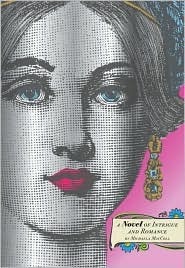
Prisoners in the Palace, by Michaela MacColl. Young adult. Newly orphaned sixteen-year-old Liza goes from society girl to lady's maid, serving young Princess Victoria, and steps into a web of royal intrigue.
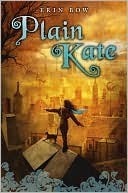
Plain Kate, by Erin Bow. Middle grade. A young orphan, skilled at wood-carving, must make her way in the world accompanied only by a talking cat. But she soon finds herself entangled in a revenge plot, trying to thwart a spirit that leaves horrible destruction in its path.
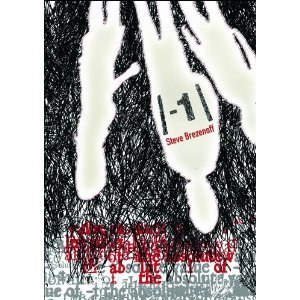
The Absolute Value of -1, by Steve Brezenoff. Young adult. Simon, Lily, and Noah struggle to find their way in an increasingly painful world, where they're not even sure they can count on each other.
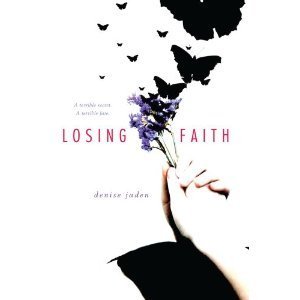
Losing Faith, by Denise Jaden. Young adult. A teenager encounters more questions than closure while mourning the death of her sister.
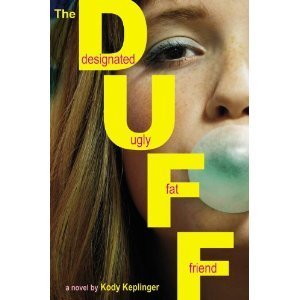
The DUFF, by Kody Keplinger. Bianca thinks she's the DUFF, the Designated Ugly Fat Friend, in her group. On top of that, she's struggling with family troubles, and attractions she doesn't fully understand.
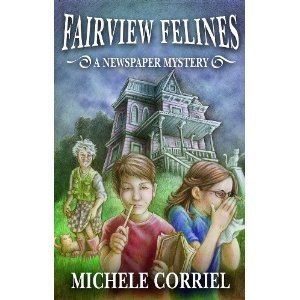
Fairview Felines: A Newspaper Mystery, by Michele Corriel. Middle grade. Thomas Weston wants to start a school newspaper, but first he has to prove he has what it takes--which means solving the mystery of all the missing cats in Fairview.
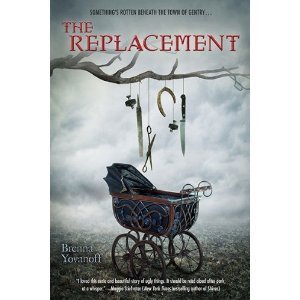
The Replacement, by Brenna Yovanoff. Young adult. A changeling who has been raised in a human family comes of age and confronts his origins.
Published on October 03, 2010 23:24
All the little details
Even contemporary fiction writers often need to do a little research, to make our fake worlds seem authentic. Some of the things I have done in the service of my stories:
Walked through a neighborhood in which I once lived to record the sights, sounds, and smells.
Looked up sky-diving information on the internet and watching videos of a few people sky-diving, plus remembered everything I could about what an old friend had told me about his sky-diving excursions (back in the days before tandem jumps became common).
Took paper and pen on a mountain hike to scribble down details about setting.
Consulted the diary I kept when I was in Iceland.
I have also researched automobile crashes, psychics, pharmaceutical toxicology, and wild mushrooms. Among many other topics.
But my favorite kind of research is the incidental kind, where I use something that I've already read about or experienced, without realizing at the time that I would end up using it in a story. I've done this with some of my Himalayan mountaineering reading, and with a book I read about guys trying to ride a hand-made raft across the Pacific. And I've used my hiking experiences in more ways than I can count.
Of course, if you want to go hard-core on research, you can go to the Writers Police Academy like April Henry did.
[image error] [image error]
Walked through a neighborhood in which I once lived to record the sights, sounds, and smells.
Looked up sky-diving information on the internet and watching videos of a few people sky-diving, plus remembered everything I could about what an old friend had told me about his sky-diving excursions (back in the days before tandem jumps became common).
Took paper and pen on a mountain hike to scribble down details about setting.
Consulted the diary I kept when I was in Iceland.
I have also researched automobile crashes, psychics, pharmaceutical toxicology, and wild mushrooms. Among many other topics.
But my favorite kind of research is the incidental kind, where I use something that I've already read about or experienced, without realizing at the time that I would end up using it in a story. I've done this with some of my Himalayan mountaineering reading, and with a book I read about guys trying to ride a hand-made raft across the Pacific. And I've used my hiking experiences in more ways than I can count.
Of course, if you want to go hard-core on research, you can go to the Writers Police Academy like April Henry did.
[image error] [image error]
Published on October 03, 2010 01:24
October 1, 2010
Stopping domestic violence
To honor National Domestic Violence Awareness month, author Swati Avasthi has combined a blog tour for her debut novel, SPLIT, with a charity auction. Over 40 authors, agents and editors have donated manuscript critiques, personalized books, and more to an online auction that anyone –reader, writer, booklover -- can bid on and buy.
(Among them are a
All proceeds go to the Family Violence Prevention Fund. In addition to the auction, Avasthi is donating $1/comment on her 26-stop, month-long blog tour, coordinated by Kari Olson at Teen Book Scene. If we reach the goal and cap of $250, Swati will double the donation to the Family Violence Prevention Fund.
The CDC estimates that one in four women will experience intimate partner abuse during her life and UC Davis estimates that a child who grew up witnessing abuse is four times as likely to perpetrate abuse, 25 times more likely to commit rape and 6 times more likely to commit suicide. Family Violence Prevention Fund has some great initiatives, including Coaching Boys Into Men and Start Strong, that are about breaking the intergenerational cycle and preventing abuse. So, follow the tour, get stuff you want, and make a difference.
(If you can't do anything else, at least please consider visiting the blog-tour stops and commenting--it costs you nothing but will result in donations, as with the Library-Loving Blog Tour I've hosted the past couple of years!)
[image error] [image error]
(Among them are a
All proceeds go to the Family Violence Prevention Fund. In addition to the auction, Avasthi is donating $1/comment on her 26-stop, month-long blog tour, coordinated by Kari Olson at Teen Book Scene. If we reach the goal and cap of $250, Swati will double the donation to the Family Violence Prevention Fund.
The CDC estimates that one in four women will experience intimate partner abuse during her life and UC Davis estimates that a child who grew up witnessing abuse is four times as likely to perpetrate abuse, 25 times more likely to commit rape and 6 times more likely to commit suicide. Family Violence Prevention Fund has some great initiatives, including Coaching Boys Into Men and Start Strong, that are about breaking the intergenerational cycle and preventing abuse. So, follow the tour, get stuff you want, and make a difference.
(If you can't do anything else, at least please consider visiting the blog-tour stops and commenting--it costs you nothing but will result in donations, as with the Library-Loving Blog Tour I've hosted the past couple of years!)
[image error] [image error]
Published on October 01, 2010 21:24
September 30, 2010
Silent censorship
Thanks to Megan Frazer for the link to this article by Debra Lau Whelan: "A Dirty Little Secret: Self-Censorship", from School Library Journal.
For me, this form of censorship (which I call "silent censorship") is the most dangerous of all, and the most difficult to combat. It's why challenges (where a book is objected to, but ultimately not removed from a collection) are just as important as bans (where a book is actually removed or never included in a collection).
Some highlights from the article:
"In the first survey of its kind, School Library Journal (SLJ) recently asked 655 media specialists about their collections and found that 70 percent of librarians say they won’t buy certain controversial titles simply because they’re terrified of how parents will respond. Other common reasons for avoiding possible troublemakers include potential backlash from the administration (29 percent), the community (29 percent), or students (25 percent), followed by 23 percent of librarians who say they won’t purchase a book due to personal objections. (Click here for survey details.)"
"There have been enough cases of librarians losing their jobs or facing the threat of losing employment while defending the freedom to read that ALA has created the LeRoy C. Merritt Humanitarian Fund to help pay for fees and expenses associated with these First Amendment clashes, says Deborah Caldwell-Stone, deputy director of ALA’s Office of Intellectual Freedom."
"“Some of these parents can be so relentless in their attacks, and the attacks are personal,” says [Lauren] Myracle, whose book was ultimately pulled by the school superintendent who circumvented the formal review process."
"The pressure to avoid this kind of confrontation can sometimes creep into the minds of the writers themselves. “It has that kind of invisible corrosive effect,” says Bertin of the National Coalition Against Censorship."
This is where I think efforts such as Speak Loudly have value. Speak Loudly reminds us that just because a book banner is vocal does not mean that he or she necessarily represents the standards of an entire community. It reassures librarians and teachers who might be hesitant to purchase a book that they won't have to stand alone if it's challenged. It encourages writers to tell the stories they need to tell, because people do need and value them.
The biggest advantage in having thousands of people speaking up--regardless of whether they ever do anything beyond contributing to a Twitter feed or writing a blog post--is that they present a counter-argument, an alternative to the "Let's just be quiet, because if we are quiet enough, we won't offend anyone" approach. Nobody can ever be quiet enough to ensure safety. As Judy Blume said in the above-quoted article, "'I always tell people, 'You think you’re safe? Think again, because when you’re writing, anything can be seen as dangerous.’”
For me, this form of censorship (which I call "silent censorship") is the most dangerous of all, and the most difficult to combat. It's why challenges (where a book is objected to, but ultimately not removed from a collection) are just as important as bans (where a book is actually removed or never included in a collection).
Some highlights from the article:
"In the first survey of its kind, School Library Journal (SLJ) recently asked 655 media specialists about their collections and found that 70 percent of librarians say they won’t buy certain controversial titles simply because they’re terrified of how parents will respond. Other common reasons for avoiding possible troublemakers include potential backlash from the administration (29 percent), the community (29 percent), or students (25 percent), followed by 23 percent of librarians who say they won’t purchase a book due to personal objections. (Click here for survey details.)"
"There have been enough cases of librarians losing their jobs or facing the threat of losing employment while defending the freedom to read that ALA has created the LeRoy C. Merritt Humanitarian Fund to help pay for fees and expenses associated with these First Amendment clashes, says Deborah Caldwell-Stone, deputy director of ALA’s Office of Intellectual Freedom."
"“Some of these parents can be so relentless in their attacks, and the attacks are personal,” says [Lauren] Myracle, whose book was ultimately pulled by the school superintendent who circumvented the formal review process."
"The pressure to avoid this kind of confrontation can sometimes creep into the minds of the writers themselves. “It has that kind of invisible corrosive effect,” says Bertin of the National Coalition Against Censorship."
This is where I think efforts such as Speak Loudly have value. Speak Loudly reminds us that just because a book banner is vocal does not mean that he or she necessarily represents the standards of an entire community. It reassures librarians and teachers who might be hesitant to purchase a book that they won't have to stand alone if it's challenged. It encourages writers to tell the stories they need to tell, because people do need and value them.
The biggest advantage in having thousands of people speaking up--regardless of whether they ever do anything beyond contributing to a Twitter feed or writing a blog post--is that they present a counter-argument, an alternative to the "Let's just be quiet, because if we are quiet enough, we won't offend anyone" approach. Nobody can ever be quiet enough to ensure safety. As Judy Blume said in the above-quoted article, "'I always tell people, 'You think you’re safe? Think again, because when you’re writing, anything can be seen as dangerous.’”
Published on September 30, 2010 23:27
There must be a reason
Recently, I've read a couple of books that had the same problem. They were otherwise pretty good books. But this bothered me about both of them: The characters sometimes took the long way around for no apparent reason.
Let me illustrate with a made-up example. Suppose a character has the ability to breathe underwater. She is put in a situation where she has to get from a lakeshore to an island in the middle of the lake. But instead of walking right into the lake and using her underwater breathing to go directly to the island, she spends four chapters running all over the place trying to get a boat. And it isn’t that the author explains this—there isn’t a catch, say, such as the girl only being able to breathe in salt water. It’s as if character and author have both forgotten this special ability, while the reader is saying, “Hey, why don’t you just use your underwater breathing instead of wasting all this time and energy hunting down a boat?”
In life, people don’t usually make extra work for themselves; they don’t often do things the hard way when there’s an easier way that would work better. If characters do things the hard way, there needs to be a reason—and that reason needs to arise from the character. The author can’t say, “Well, she needs to be in a boat because she’s going to find the magic stone hidden in the anchor.” That’s the author’s reason for the boat, not the character’s.
Of course, it's easier to spot such issues in someone else's writing rather than one's own--yet another reason that critiquers are valuable. :-)
Let me illustrate with a made-up example. Suppose a character has the ability to breathe underwater. She is put in a situation where she has to get from a lakeshore to an island in the middle of the lake. But instead of walking right into the lake and using her underwater breathing to go directly to the island, she spends four chapters running all over the place trying to get a boat. And it isn’t that the author explains this—there isn’t a catch, say, such as the girl only being able to breathe in salt water. It’s as if character and author have both forgotten this special ability, while the reader is saying, “Hey, why don’t you just use your underwater breathing instead of wasting all this time and energy hunting down a boat?”
In life, people don’t usually make extra work for themselves; they don’t often do things the hard way when there’s an easier way that would work better. If characters do things the hard way, there needs to be a reason—and that reason needs to arise from the character. The author can’t say, “Well, she needs to be in a boat because she’s going to find the magic stone hidden in the anchor.” That’s the author’s reason for the boat, not the character’s.
Of course, it's easier to spot such issues in someone else's writing rather than one's own--yet another reason that critiquers are valuable. :-)
Published on September 30, 2010 01:12
September 29, 2010
Glass houses
So it's Banned Books Week, and people have been waxing eloquent on the banned books they love and why they love them, and why it would have been a terrible thing if they hadn't been able to read them. There's plenty to love about these books and these posts.
Today, I'm going to try a different angle. I'm going to talk about books I was momentarily tempted to try to ban.
My local library has some books on the shelves written by people who are not only on the opposite end of the political spectrum from me, but are quite outspoken about it. As in, outspoken on national TV. And not only do they have different opinions from mine, I know of several instances where they have reported facts incorrectly.
Out of curiosity, I looked at the jacket flaps--I do read books by people who differ from me politically, especially if it looks like the books may give me a point of view I haven't considered before, or some information I didn't know. Also because, even when I disagree throughout, I want to know why people who think so differently from me think the way they do. What appeals to them in a message that appalls me?
In this particular case, I found the jacket flaps so stomach-turningly offensive that I couldn't bear to read the books. I returned them to the shelves, although for an instant I was 1) angry that my tax money had gone toward putting these books there; and 2) tempted to check them out and never bring them back, so that others couldn't read them.
Those impulses only lasted an instant, because in the next moment I remembered this little thing called the First Amendment that I'm always blathering on about. And that the true test of my dedication to it is not how much I support the speech of people I agree with, but how tolerant I am of speech I disagree with most vehemently.
Which doesn't mean that I can't say my own piece about these books, or the issues in them. (I'm choosing not to get into that on this particular post, but I have spoken up in other areas of my life.) It just means that I don't attempt to silence the voices that I find disturbing, especially while I'm asking others not to silence the voices they find disturbing.
Today, I'm going to try a different angle. I'm going to talk about books I was momentarily tempted to try to ban.
My local library has some books on the shelves written by people who are not only on the opposite end of the political spectrum from me, but are quite outspoken about it. As in, outspoken on national TV. And not only do they have different opinions from mine, I know of several instances where they have reported facts incorrectly.
Out of curiosity, I looked at the jacket flaps--I do read books by people who differ from me politically, especially if it looks like the books may give me a point of view I haven't considered before, or some information I didn't know. Also because, even when I disagree throughout, I want to know why people who think so differently from me think the way they do. What appeals to them in a message that appalls me?
In this particular case, I found the jacket flaps so stomach-turningly offensive that I couldn't bear to read the books. I returned them to the shelves, although for an instant I was 1) angry that my tax money had gone toward putting these books there; and 2) tempted to check them out and never bring them back, so that others couldn't read them.
Those impulses only lasted an instant, because in the next moment I remembered this little thing called the First Amendment that I'm always blathering on about. And that the true test of my dedication to it is not how much I support the speech of people I agree with, but how tolerant I am of speech I disagree with most vehemently.
Which doesn't mean that I can't say my own piece about these books, or the issues in them. (I'm choosing not to get into that on this particular post, but I have spoken up in other areas of my life.) It just means that I don't attempt to silence the voices that I find disturbing, especially while I'm asking others not to silence the voices they find disturbing.
Published on September 29, 2010 00:53
September 28, 2010
Letter from the Muse
Dear Writer:
I've noticed your internal critic getting out of hand lately, and I'm here to inform you he has met with a little accident and somehow ended up stuffed in a trunk. (Funny how that happened.) He won't be bothering you for a while. We will drag him out later when we need him to edit the manuscript, but if he keeps mouthing off there won't be a manuscript. And the whole reason I'm throwing these ideas at you is so there will be a manuscript. I'm not doing all this talking just to exercise my jaw, you know.
Carry on.
Your Muse
Published on September 28, 2010 02:52



